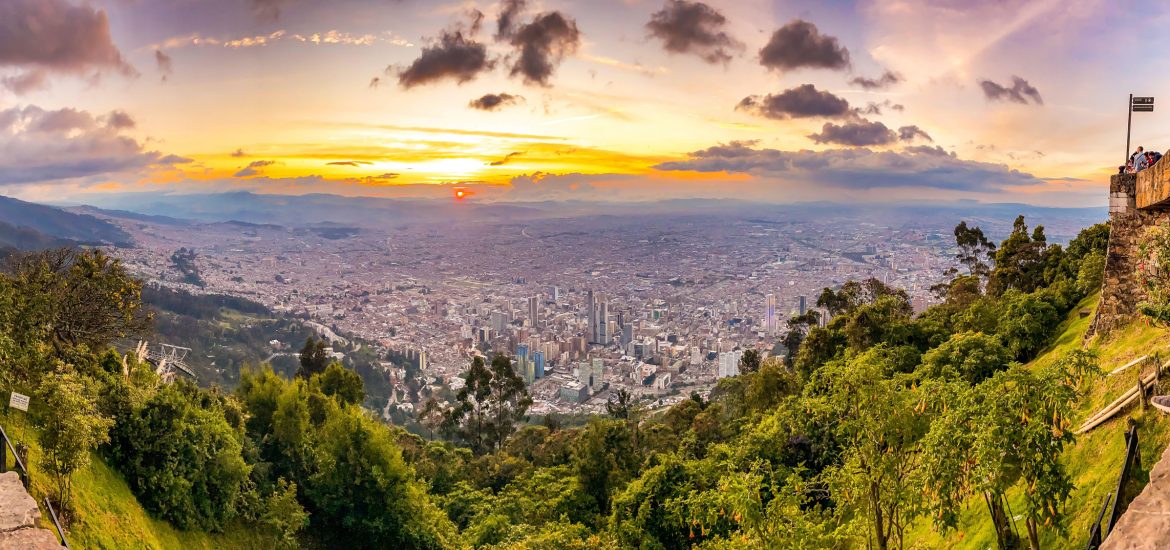When the country of Colombia is mentioned, media stereotypes conjure vibrant and romantic communities, passionate dancing and pleasant beaches, and less savory images like high crime rates and drug abuse. Neither stereotype reflects accurately the complexity and nuances of this country of 50.88 million. If there is someone that embodies the fearless, hopeful, and life-loving spirit of Colombia, it is Ángela María Zarama Salazar. A sociologist at Pontificia Universidad Javeriana, Bogotá, she wrote a groundbreaking thesis about Buddhism in the Colombian capital, which she adapted in part for her article on BDE. This thesis received an honorable mention for best undergraduate thesis in the Otto de Greiff National Contest. She is passionate about transparency and fighting corruption, and as such is a research assistant at Transparency for Colombia. This is the Colombian chapter of Transparency International, where she monitors the public anti-corruption initiatives of the Colombian government, as well as the acts of corruption reported in the national press.
Her contact with the media has honed her own journalistic skills, and as someone deeply concerned with practical ethics, she has explored the topic of Zen and applied ethics through her interview with Rev. Denshō Quintero, Entrevista al maestro Densho Quintero de la Comunidad Soto Zen de Colombia: el budismo y la acción social (Part One and Part Two of his interview with us is available on BDE). He is a Sōtō zen priest, Dharma heir of Shohaku Okumura Rōshi (head teacher of Sanshin Zen Community in Bloomington, Indiana). He is the head teacher of the Daishin Temple in Bogotá, which ministers to the Colombian Soto Zen Community. In his conversation with Ángela, he outlines not just his school’s teachings, but also how he established his community in Bogotá and the kind of mindset that he finds helps him in his busy everyday life.
Rev. Denshō Quintero is also an author, having published prolifically for the Spanish-reading world. He wrote Spanish-language titles, including: Zen Consciousness, Reflections for Everyday Life (2006), Zen Awakening: The path of a Colombian monk (2011), Zen, a path of transformation (2016), and Doubting your own understanding (2018). He is also a translator, having brought to Spanish readers, including Opening the Hand of Thought by Kosho Uchiyama Rōshi (,2009) and Heart of Zen, a Practice without Gaining Mind (2012). Finally, he co-authored Boundless Vows, Endless Practice (2018), and Buddhism and Christianity in Dialogue (2018).
Ángela has also turned her attention to Buddhism on the silver screen. In La belleza de volver a lo simple. Reseña de The Buddha: The Story of Siddhartha, she reviews the PBS documentary The Buddha: The Story of Siddhartha (2010). She writes: “One of the reflections left by the documentary is on how Buddhism continues to be relevant and current today due to one of the teachings that lack temporality: all beings have the ability to achieve enlightenment. However, there is a great lack of knowledge about the capacities that humanity has to reach these levels of gratitude, understanding and peace. In that sense, documentaries, images, statues or even paintings sometimes serve as a mirror and remind us of those teachings of the Buddha from aesthetics.” She presents the documentary as a film that can be universally experiences: “For those who are beginning to approach Buddhism, the documentary will be an appetizer and, for others who have been there for a while, it can be a way of putting the ego aside and thus recognizing that we still know little, that we still have a lot to learn. and that there are times we must remember again the beauty of the simple.”
Ángela María Zarama Salazar is no doubt one of our core contributors on Buddhism in Colombia. There are other authors whom we shall highlight in the next post.


